The fact that incoming boss Vincent Tourette was an old hand within the Renault-Nissan Alliance – he has worked for the Renault-Nissan Alliance for 23 years, most recently as Nissan’s vice-president, sales and marketing in Tokyo, and held UK posts as general manager for Renault Retail Group and marketing planning manager at Renault UK – may have provided some reassurance.
However, the position Tourette finds himself in is arguably less stable than the one former Ford executive Paul Flanagan inherited when he took up the post in May 2016.
Rising inflation, a recent increase in interest rates and the uncertainty surrounding Brexit negotiations have all dented market confidence.
When Renault replaced its UK managing director after just 12 months in the role, franchisees could have been forgiven for feeling a little on edge.
The fact that incoming boss Vincent Tourette was an old hand within the Renault-Nissan Alliance – he has worked for the Renault-Nissan Alliance for 23 years, most recently as Nissan’s vice-president, sales and marketing in Tokyo, and held UK posts as general manager for Renault Retail Group and marketing planning manager at Renault UK – may have provided some reassurance.
However, the position Tourette finds himself in is arguably less stable than the one former Ford executive Paul Flanagan inherited when he took up the post in May 2016.
Rising inflation, a recent increase in interest rates and the uncertainty surrounding Brexit negotiations have all dented market confidence.
Flanagan found himself running a brand that was celebrating a 21% year-on-year sales rise (44,570) during H1 2016 – it would go on to more than double its annual registrations from the low point in 2012 (40,760) – and it won AM’s Franchise of the Year award.
To the end of October this year, the brand was down 14.7% year-on-year at 61,850 registrations (2016: 72,472), with a market share down 0.33 percentage points at 2.78%.
When AM sat down with Tourette at Renault UK’s Maple Cross headquarters, Tourette described the current economic climate as “unstable and very volatile” and admitted that he was not sure of the size of the challenge he was taking on when his time came to leave Tokyo.
“I’d been asked if I would be happy to come back to Europe in the [managing director] position in one of the big countries. I said yes, and a few weeks later I was here in the UK,” said Tourette

Renault’s rival to the Ford Fiesta and Vauxhall Corsa remains its biggest seller in 2017, but its 18,247 registrations to the end of October were down 11.4% on the same period last year.
Tourette clearly identifies Brexit as the biggest challenge he has to deal with in the UK, alongside the growing shift away from diesel, both of which have arrived at roughly the same time as some ambitious volume and profitability targets from the Renault-Nissan Alliance.
A Renault spokesman said the brand had been “on track” to hit its 5% market share target (for Renault, Renault LCV and Dacia) in its previous growth programme, GO5+, before the impact of Brexit and the decline in foreign exchange rates and the market.
“In 2014, we achieved 3.9%. That increased to 4.2% in 2015 and then 4.5% last year,” the spokesman said.
At the start of October, Carlos Ghosn, the chairman and chief executive of Renault, published his Drive the Future plan. It is intended to grow global volumes by 40% to more than five million vehicles and achieve a 7% margin from revenues of more than £62 billion by 2022.
Much of the volume growth will be generated in emerging overseas markets such as Russia, China, India and South America, a move which could see volume diverted from the UK.

The only Renault car to deliver increased sales in the 10 months to the end of October – 5,347 registrations up 21.1% on 2016 – the current Megane is in its first full year on sale.
While it has recruited 13 new partners into open points over the past three years – among them Savilles of Stourbridge; Picador Southampton; Platts Stafford; RMB Darlington/Leeds; Glyn Hopkin various; Wessex Newport; CCR Weston Super Mare; Griffin Mill Pontypridd; John Clark Aberdeen; Right Car Hull; Stoneacre Chesterfield; Dobsons Kendall – Renault has parted with a similar number, keeping the network stable at 160 sales outlets.
Where the growth lies for Renault
In the UK, Renault wants to drive profitability, which means improving the quality of business is essential at a time when the weak pound limits opportunities for importers.
Tourette said: “We don’t know exactly what will happen, we just know that it will be very unstable and very volatile in many ways” adding that it was time to “rebalance the way we do our business”.
He said the brand and its network had to focus on retail and SME sales.

A close second to the Clio in the sales stakes, with 18,244 registrations to the end of October (down 17.2% on 2016), the Captur is still a strong performer four years after its UK launch.
On the fleet side, Renault filled two new roles in August – a national fleet manager and a national rental and mobility manager.
It also recruited 10 business sales area managers to support dealers’ fleet sales.
Renault is also trying to help dealers embrace sales of zero-emission vehicles among corporate customers and added two EV sales managers in October.
The Zoe hatchback increased its official New European Driving Cycle (NEDC)-certified range of 250 miles in 2017 and the new Kangoo Z.E. minivan now claims an NEDC range of 170 miles – a 60% improvement over the previous version.
Ghosn’s Drive the Future plan announced a product push that would see eight pure EVs among the 21 new Renault vehicles planned for launch globally by 2022.
Half of Renault’s cars will be fully electric or hybrid by the end of the plan, according to Ghosn.
Tourette acknowledged the ongoing fall-out from the ‘dieselgate’ emissions cheating scandal and the “impact on customers’ mindset” of anticipated changes to legislation surrounding diesel vehicles to meet EU NOx emissions standards.
Renault said its Local Fleet Strategy helped retailers achieve a 25% uplift in fleet sales in 2016 (21,939 cars and vans) and had driven a 96% uplift in “local fleet performance” (cars and vans combined) by August this year.

The Kadjar takes the fight to larger SUV C-segment rivals, such as the Nissan Qashqai, VW Tiguan and Peugeot 3008. To the end of October 14,233 were registered, down 18.4%.
Of its 160-strong network, 32 are now Pro+ Specialist Fleet and Business Centres, each with a dedicated local fleet sales specialist charged with local fleet car and van opportunity of more than 150 units/year.
Among nine customer promises, the Pro+ dealers also pledge to offer servicing appointments within three days, extended opening hours when requested and the provision of an equivalent courtesy vehicle.
But Tourette said that it is essential that Renault steers clear of the more expensive fleet channels.
“If you are too dependent on these expensive channels, you are too exposed to the volatility of the pound,” he said.
“Also, these channels very often are about big volumes of cars, so that can come and go very rapidly; while retail business and small businesses, which are a bit comparable to private customers, are much more stable and come with better loyalty if you deliver the right level of customer experience.”
Renault appears to be backing off pre-registration as it looks to rebuild volumes from a dip to less than 45,000 in 2012, which was some 77% behind its 2002 high point of 194,682.
In the NFDA’s Summer 2017 Dealer Attitude Survey, the 85 responding Renault dealers rated the brand’s “inducement to self-register vehicles” third from bottom, with a score of 3.2 out of 10, down on the Winter 2016 survey’s 4.4, suggesting that Renault is not pushing them to pre-register.
Tourette said the brand was on track to achieve 115,000 registrations this year, with 20% of those in commercial vehicles.
“The point is not to go for volumes at any cost,” he added.
Ringing the changes
As Tourette arrived, a new phase of exterior changes was beginning to be made to retail premises.
Renault’s corporate identity changes have been implemented in interior and exterior phases, with each costing an average of £80,000, to ease the financial burden on retailers.
The interior element of the network-wide scheme is now 90% complete and the new exterior appearance was pioneered by Evans Halshaw’s recently opened Edinburgh West site.
 Tourette said: “The purpose of the exterior is to make sure the improvements in product are obvious from a network point of view, and we are at the beginning of the journey in regard to the perception of the brand.
Tourette said: “The purpose of the exterior is to make sure the improvements in product are obvious from a network point of view, and we are at the beginning of the journey in regard to the perception of the brand.
“If we want to be a robust brand with sustainable growth, we need to deliver an excellent customer experience.”
Renault’s push to compete with the more premium end of the volume sector – territory traditionally dominated by Volkswagen – is evident in the Megane hatchback, launched last summer, and the addition of a new model line in the form of the Koleos D-Segment SUV launched this summer.
Priced from £27,500 to £34,200, the Koleos breaks new ground for Renault in terms of the potential profit its retailers can achieve.
The Koleos is the third SUV in Renault’s line-up, which has been light since it discontinued the Espace MPV, Laguna saloon, Modus hatchback and Wind compact convertible in 2012.
Next year, the brand will introduce its first pick-up, the Alaskan, and a new sports car brand, Alpine.
Renault has called on its network partners to increase their capacity to display the expanding range in the face of a declining market that has eroded the 1.6% return-on-sale figure achieved in 2016 (Tourette would not give an up-to-date figure).
Tourette said: “We have a strong franchising plan with each of our dealers in order to see how we can optimise the situation with each other.
“We are working with them one by one because our range now is quite wide. Potentially, we have 10 vehicles to be displayed.”
Incentivising good customer service
New additions to the Renault range are pushing the average price of a Renault up, away from the affordable heartland of the Clio and Twingo models.
Tourette is keen to see a corresponding focus on the customer, that will see service levels prioritised to meet rising expectations.
Extended workshop opening hours are likely to become a manufacturer standard, with Tourette stating that some retailers are already operating extended workshop shift patterns through a seven-day week.
“Today, given the growth we’ve had over the past three years, we are facing a capacity limitation within our network, so that’s also a way to give a bit of service to our customers,” he said.
“Part of the specific customer experience is the ability to get in touch rapidly and get an appointment quickly with your dealer.”
In 2016, Renault teamed up with Auto Express to establish the Driver Power Dealer of Excellence programme, which saw franchisees’ customer service ratings verified by the motoring survey experts and the results fed into an annual awards event.
This summer, Renault partnered with the online review platform Reevoo, encouraging customers to post reviews – which could be acted upon if negative – on its official website.
Tourette said the brand is also using more mystery shoppers to increase accountability in customer service practices: “Mystery shopping videos have helped tremendously to get the right spirit from people and to learn from the good experiences.
“The beauty of it is that when you see yourself, it’s not something you dispute.”
Tourette encouraged retailers to go through the mystery shopper videos with their staff: “The idea is not to point fingers, it is to find ways to do better and improve. If it’s done with that mindset, there is a lot to learn.”
A change to a dealer bonus structure, which already takes account of customer service performance, will further
incentivise good customer service.
Tourette said: “There is a bonus for the dealers linked to their new car and aftersales customer experience. The idea for next year is to see how we can maybe make it even more efficient and that will be reflected in dealers’ remuneration.”
How Renualt dealers rate the brand
Near the start of Tourette’s career with Nissan-Renault Alliance hierarchy, he was general manager at the Renault Retail Group’s flagship showroom in Enfield, north London.
He said the experience has made him keen to acknowledge feedback from his network.
Since his arrival, the Renault management team at Maple Cross will clear directors’ diaries for two days each week to facilitate meetings with retail partners.
Tourette said the results of the NFDA’s Dealer Attitude Survey were “very important” to him, but acknowledged that he had had little time to affect the latest set of results.
The brand’s overall rating in the Summer 2017 survey dipped from 6.4 to 5.9, against a survey average of 5.6.
Dealers rated the return on capital presented by the franchise at 3.9, down on the winter survey’s 4.9 rating and a survey average of 4.7, and delivered a 0.8 drop to 4.9 rating when asked to comment on the level of capital investment it demanded (average: 5.1).
An above-average score of 6.3 (average: 5.0) was recorded for the margin achieved on new vehicles.
Even before Ghosn announced the ambitious terms of his Drive the Future plan, however, dealers aired scepticism about Renault’s target aspirations, with a 3.1 score related to target aspirations (average: 4.8).
Tourette insisted he would act on the feedback.
“I aim to be in the field with the dealers, to talk to sales execs, to talk to technicians, to get their direct feedback,” he said.
“Having been a dealer myself, I really see myself on the boat together with them. We win together, or we lose together.”
Alpine Sports car brand a feather in the cap for eight Renault dealers
Renault showrooms already growing to accommodate an expanding range of SUVs will be stretched still further with the addition of the Alpine sports car brand.
Eight dealers are expected to be confirmed as Alpine retailers, but Tourette said the final tally and some of the contracts had yet to be agreed with retail partners.
Tourette said: “The tooling required to work on the car, the specialist training and the relatively small volumes mean that the Alpine brand is not something that is viable for the entire network, but it is good to have a flagship vehicle like that.”
The mid-engined Alpine A110 was first shown at the 2017 Geneva Motor Show and will take on the likes of Porsche’s Cayman and the Alfa Romeo 4C when it arrives in UK showrooms next year.
Prices for the 250PS 1.8-litre engine coupé are expected to start at around £48,000.
Login to continue reading
Or register with AM-online to keep up to date with the latest UK automotive retail industry news and insight.

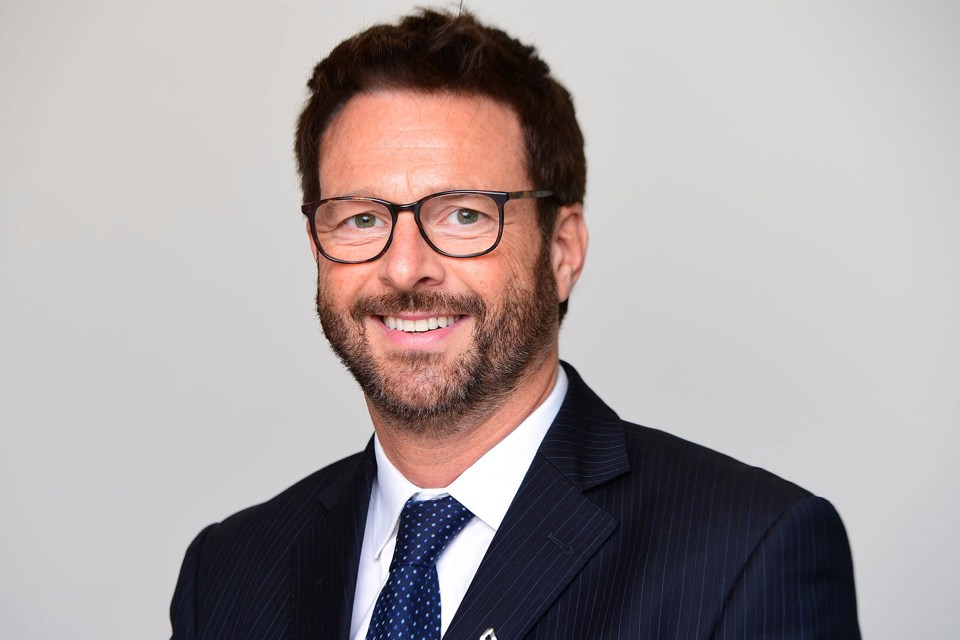

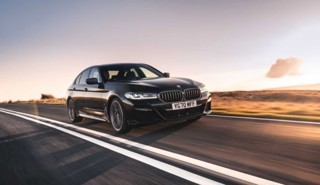
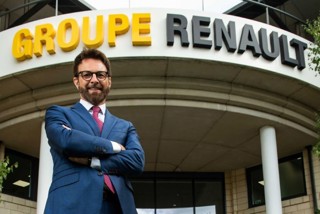
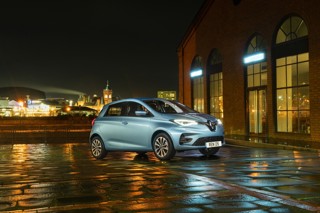
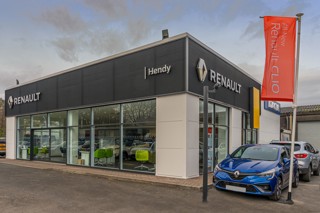












Login to comment
Comments
No comments have been made yet.